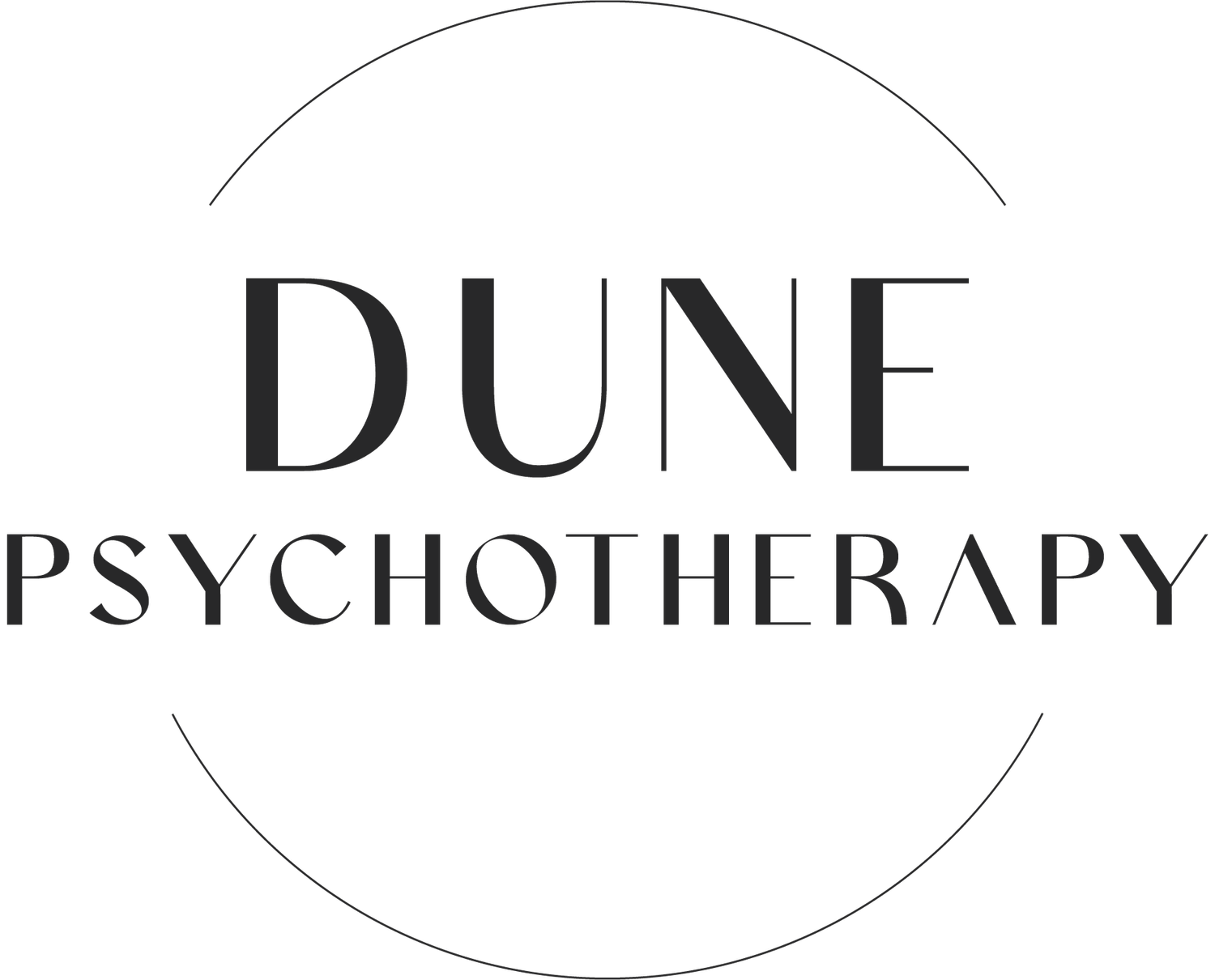My Approach To “Tools”
Welcome to Dune Psychotherapy.
I created Dune because I wanted to help people find freedom.
People come to therapy and ask me for coping skills, tools…stuff they can do to make themselves feel better.
Now, as a cognitive-behavioural therapist, I have some thoughts on this. I was trained in CBT with a fantastic group called Unified CBT. Unified CBT introduced me to a new idea: that people with anxiety tend to avoid and distract themselves from pain, the unknown, and from suffering…and the more people distract and avoid, the worse the suffering becomes.
When people have anxiety, a sort of constant false alarm that rings in their minds 24/7, they start believing that everything is a threat. They come to therapy because they don’t want to feel this way anymore. They want to laugh, go to the movies, go to the grocery store without having a panic attack. They want to enjoy life, see friends and family, go for a run or travel the world.
Let’s use an example of what anxiety can look like and how coping skills make “sense.”
Social anxiety is a common anxiety disorder. People who are socially anxious tend to think they are being observed, judged, and watched by others. They fear being humiliated, making a mistake, being reprimanded or getting negative feedback. They don’t want to sweat or blush in front of people, they don’t want to say the wrong thing, they don’t want to appear weird or uninteresting. So they DO THINGS that they THINK decreases this: they come up with funny, witty things to say before they meet friends.
They try to be perfect at work, to avoid criticism.
They try to prevent themselves from sweating, maybe by wearing certain clothes or keeping themselves very calm throughout the day.
The experience of being anxious is already exhausting: but people cope with it by doing more exhausting things.
Now someone not only has these fears, they also have to engage in these time consuming “things” in order to function and cope.
I must be perfect. I must not make a mistake. I must be funny. I must be interesting. I must not sweat or blush. I must not shake. My voice cannot waver or quiver.
So when people come to therapy, they ask me, “I want to learn coping skills” which I sometimes hear as “What ELSE can I do to prevent my social anxiety from bothering me? How else can I avoid the discomfort I have?”
In a recent training, I heard about people saying how they help their socially anxious clients make boundaries and learn breathing techniques in order to “cope.”
In my job, I look at the series of events that would occur. So let’s say I teach someone breathing techniques and I say, “You put a boundary that other people need to tell you before they come over, then you can do deep breathing for 10 minutes, then you can cope”
It sounds okay. But…what are the consequences of that?
As a therapist, I would be adding to their mental load. Not taking away. Now the client has ONE MORE THING they NEED to do before they interact well in public.
At Dune, we go through the anxiety cycles: what maintains them? How do your behaviours that you think decrease anxiety actually keep these cycles going? What would happen if you didn’t memorize the stats from last night’s hockey game in order to have something to talk about? What would it be like if you could just…talk to someone. What would it be like if you did not have to exercise for an hour, do deep breathing for 10 minutes, meditate for an hour, have a perfectly balanced meal, before you left the house for a job interview?
This is where the freedom comes in.
The best anxiety disorder treatment looks at dispelling these beliefs you have, through structured and managed behavioural experiments. Instead of doing MORE to feel less anxious, what would happen if you did less.
At Dune, expect less coping skills. Expect to challenge and confront these beliefs. Expect you can tolerate MORE by simply experiencing uncertainty and letting go of the things you believe keep you safe.

